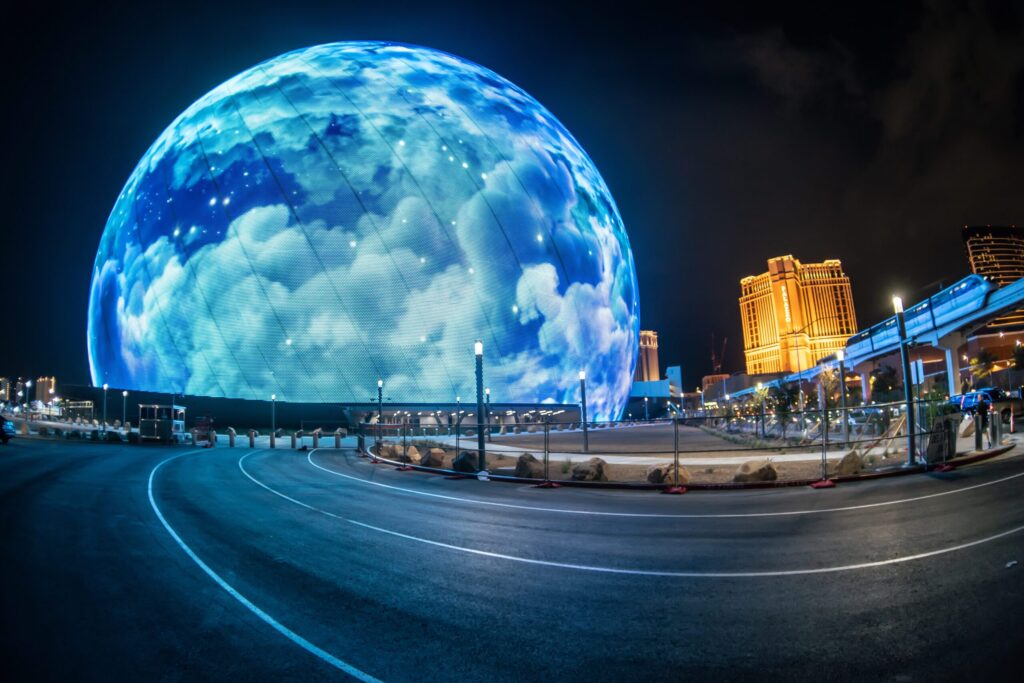Las Vegas just got even more opulent. The Sphere is a 580,000 square foot, globe-shaped arena that features an exterior with 1.2 million LED lights capable of 256 million different colors at 16k resolution. The inside is equally impressive featuring a 360-degree, immersive experience complete with vibrating seats and pumped in scents.
It’s the hottest ticket in town! U2 played the first concert in early October and the attendance counted Oprah, Lebron James, Jeff Bezos, Snoop Dogg, Matt Damon and others.
What does this have to do with the climate?
Well, all that impressive technology is a beast to power. In fact, The Sphere uses as much electricity as 21,000 homes, according to USA Today. That same article states that the goal is to eventually get 70 percent of its power from solar, but the $1.5 billion solar farm to generate all those amazing light shows hasn’t broken ground yet. Will it? We’ll have to wait and see.
This struck me as indulgence in the grandest sense.
Spending billions to build another concert venue in the desert while Las Vegas electric bills have increased 54.2% since 2021 (according to the CBS affiliate, News 8 report in April of 2023) doesn’t seem like a set of actions those concerned about the pending climate crisis should support. And yet, dozens of celebrities boarded private jets and filled Harry Reid International Airport to enjoy a performance by Bono and his band from Dublin.
These same celebrities push climate solutions that disproportionally affect agriculture. Oprah in particular lists eating less meat as number two on her list of the “Top 5 Things You Can Do About Climate Change.”
What’s ironic is that agriculture is already doing more than its part on climate. Statista.com reports that since 2012, total US cropland has decreased by about 4 million acres from 257 million to 253 million in 2019. During that same time frame total US grain production has increased from 356 million metric tons to 420 million metric tons. That’s a nearly 18% increase in grain volume while acres were reduced by 2.5%.
Doing more…a lot more…with less is how the world will continue to feed a growing population using less resources. I’m proud of the work agriculture has done to enable this incredible food production efficiency. If the entertainment industry isn’t going to try to reduce its climate impact, at least it should stop making it worse.






